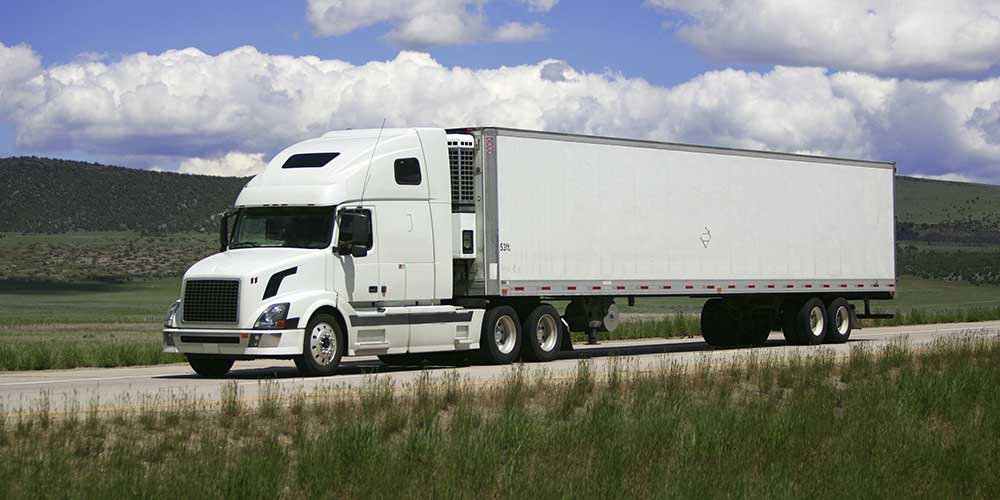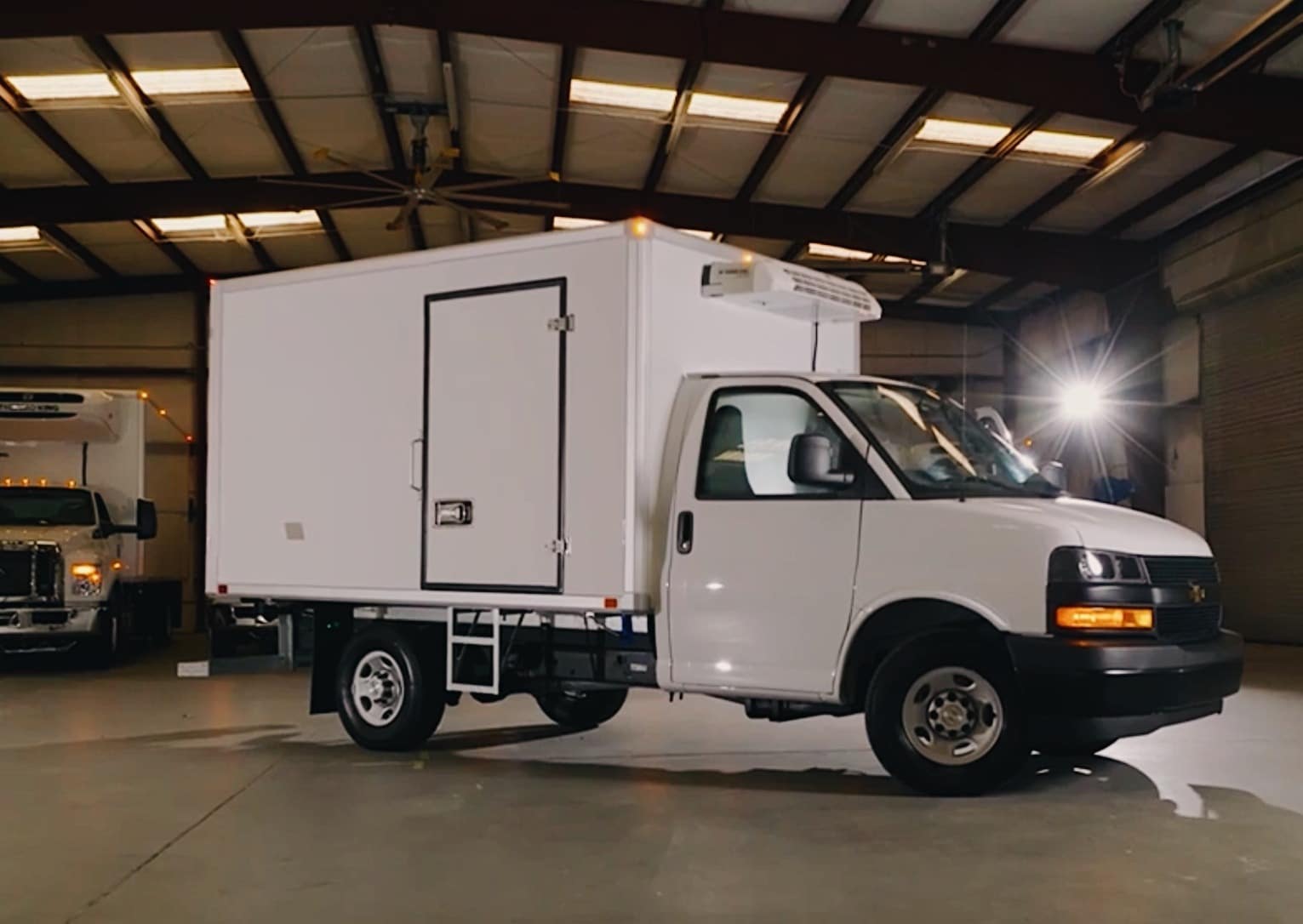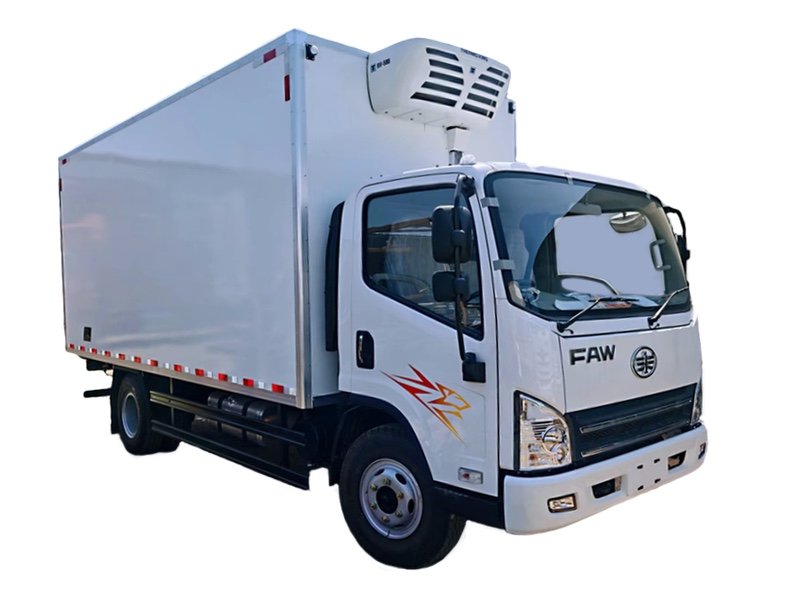Choose Thermo King Truck Refrigeration for Long-Haul Quality
Choose Thermo King Truck Refrigeration for Long-Haul Quality
Blog Article
Selecting the Right Transportation Refrigeration System for Your Fleet
Choosing an ideal transportation refrigeration system for your fleet is a crucial choice that can substantially impact operational effectiveness and item integrity. It necessitates a comprehensive understanding of your specific refrigeration demands, consisting of temperature level demands and distribution routines.
Understanding Your Refrigeration Requirements
When choosing a transport refrigeration system, recognizing your particular refrigeration requirements is paramount to ensuring item quality and conformity with market criteria. Different factors must be considered to determine the most appropriate system for your procedure. These include the sort of items being carried, their temperature level needs, and the duration of transit.
For perishable items, such as fresh produce or drugs, precise temperature control is critical. Understanding the temperature array required for each item permits the choice of a system that can preserve those conditions consistently. Additionally, consider the regularity of shipments and the range traveled; longer trips might necessitate systems with enhanced insulation or back-up power options to prevent temperature variations.

Furthermore, the capacity of the refrigeration unit must straighten with your tons dimension. Straining an unit can bring about not enough air conditioning, while an oversized system may be pricey and ineffective. Last but not least, regulative compliance is necessary; familiarize on your own with neighborhood and international guidelines governing the transport of temperature-sensitive goods. By thoroughly evaluating these factors, you can ensure that your selected transport refrigeration system efficiently meets your functional needs and maintains item stability.
Types of Transport Refrigeration Solution
Choosing the best sort of transport refrigeration system is important for making sure the risk-free transit of temperature-sensitive items. There are a number of systems offered, each created to satisfy specific demands and applications.
These systems are often favored for their performance and lower first costs. Another choice is the central refrigeration system, which serves numerous areas or vehicles from a solitary compressor device.
Furthermore, there are self-contained refrigeration units that integrate the compressor and evaporator in one bundle. These systems are ideal for smaller sized cars or when room is limited. For specialized applications, such as delivering perishables or pharmaceuticals, cryogenic refrigeration systems may be used, employing fluid nitrogen or carbon dioxide to keep ultra-low temperatures.
Lastly, crossbreed refrigeration systems that integrate diesel and electrical power are ending up being progressively preferred, using adaptability in power usage and lowering ecological effect. Understanding these different types enables fleet drivers to make educated choices customized to their details functional demands.
Key Attributes to Consider
How can one ensure that a transportation refrigeration system meets all functional demands? To achieve this, numerous key attributes must be meticulously evaluated. Temperature level control is crucial; systems must use exact temperature settings to suit different items, ranging from iced up items to perishable products.
Energy performance is another crucial consideration, as it impacts functional expenses. Try to find systems that utilize innovative innovation, such as variable speed compressors, to optimize energy Full Article use without jeopardizing performance.
Another function to examine is the reliability and sturdiness of the tools. Equipments constructed from premium products and made for durability versus rough conditions will lower upkeep costs and downtime.
Furthermore, the simplicity of upkeep and availability of elements can considerably influence operational efficiency (thermo king truck refrigeration units). Attributes like modular styles or remote tracking capabilities can improve solution processes
Lastly, compatibility with existing fleet management software program can improve tracking and reporting procedures. By concentrating on these key attributes, fleet operators can guarantee that their transportation refrigeration systems not just fulfill current needs yet also adjust to future demands.

Budgeting for Refrigeration Solutions
Assessing vital functions of transport refrigeration systems is only one component of making certain operational efficiency; budgeting for refrigeration options is just as important. A well-structured budget not just includes the preliminary purchase rate yet likewise thinks about long-term operational expenses, including power consumption, maintenance, and prospective repair needs.
When developing a spending plan, fleet managers need to initially assess the total price of possession (TCO) This includes not just the purchase costs yet likewise continuous expenses related to fuel efficiency and the sturdiness of the refrigeration systems. Choosing systems with higher power effectiveness rankings might generate substantial financial savings in time, minimizing upfront prices.
Furthermore, fleet operators must make up prospective scalability. As companies grow, the refrigeration requires may change, requiring upgrades or additional devices. Preparation for these future costs can avoid monetary strain.
Financing options can additionally play an important function in budgeting. Leasing, finances, or straight-out purchases each have distinct economic implications, and recognizing these can help in making an educated decision. Inevitably, a thorough spending plan that takes into consideration both immediate and future requirements guarantees that transportation refrigeration systems add positively to the general functional effectiveness of the click for more fleet.
Upkeep and Support Options
In the realm of transport refrigeration systems, reliable upkeep and assistance alternatives are critical for guaranteeing optimum efficiency and longevity. Normal maintenance is necessary to stop break downs and maintain the honesty of temperature-sensitive freight. It is a good idea to establish a regular assessment schedule with qualified technicians that can execute needed checks and repairs on refrigeration systems.
Assistance choices should consist of a durable service arrangement, covering both routine maintenance and emergency situation repair work. This guarantees that your fleet has accessibility to motivate support, reducing downtime and preserving functional performance. Lots of suppliers offer comprehensive assistance plans that consist of training for your personnel, enabling them to do basic troubleshooting and maintenance tasks.
Additionally, making use of remote monitoring modern technology can boost your upkeep strategy - reefer trucks thermo king. These systems provide real-time data on temperature level and efficiency, permitting for aggressive procedures prior to issues rise. Buying training and technology not just improves your fleet's integrity however likewise prolongs the life-span of your refrigeration systems
Eventually, a strategic technique to upkeep and support will certainly secure your investment and guarantee that your transport refrigeration systems operate at peak effectiveness, providing regular results for your service.

Verdict
In verdict, selecting the suitable transport refrigeration system for a fleet demands a detailed assessment of particular refrigeration needs, system kinds, and crucial attributes. Additionally, careful budgeting and planning for future scalability will certainly contribute to the lasting success of the refrigeration approach.
Selecting a suitable transport refrigeration system for your fleet is an essential decision that can dramatically impact operational efficiency and product stability.When choosing a transport anchor refrigeration system, comprehending your particular refrigeration needs is critical to making sure product top quality and compliance with sector criteria. By completely examining these factors, you can guarantee that your picked transport refrigeration system effectively meets your functional needs and maintains item honesty.
Eventually, a detailed budget plan that considers both future and prompt requirements guarantees that transportation refrigeration systems contribute positively to the overall functional efficiency of the fleet.
In final thought, selecting the proper transport refrigeration system for a fleet demands a complete assessment of certain refrigeration requirements, system types, and essential features.
Report this page